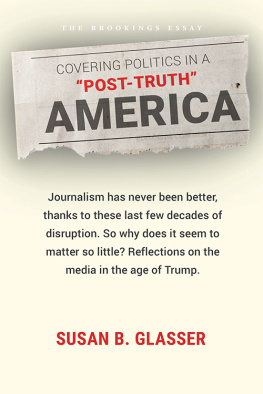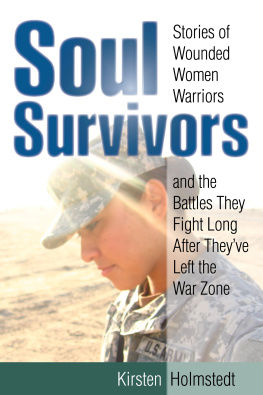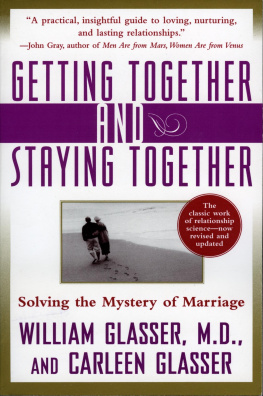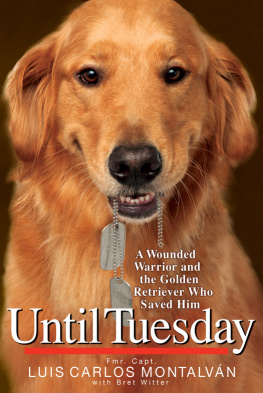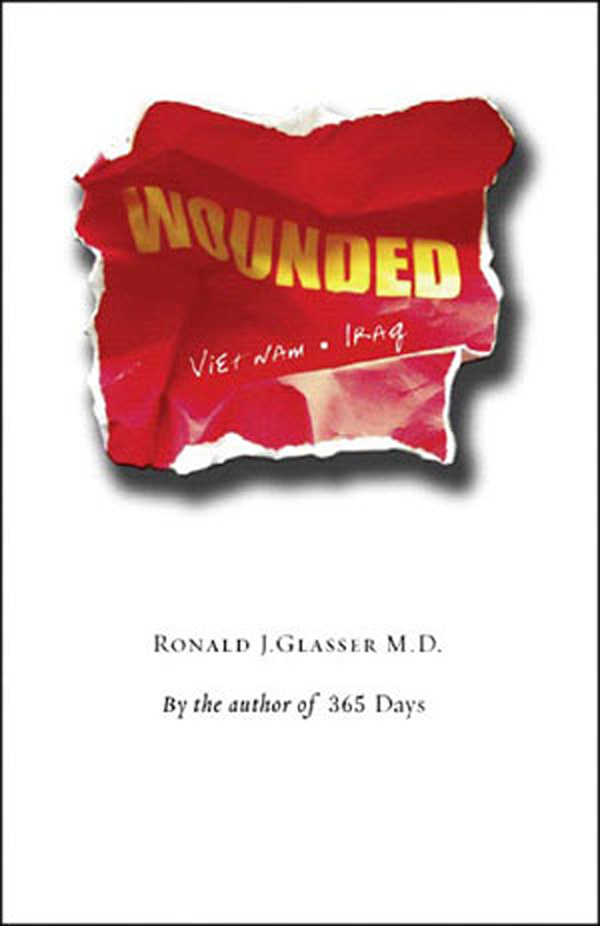
WOUNDED
Vietnam to Iraq
Ronald J. Glasser, M.D.
GEORGE BRAZILLER / NEW YORK
In respect and admiration for General Hal Moore, arguably the boldest and finest battalion commander to serve in Vietnam; Joe Galloway, the only reporter during three wars to be awarded the U.S. Armys Bronze Star with V, signifying extraordinary valor, for saving, at great risk to himself, the lives of wounded troopers during the four-day battle of the Ia Drang Valley, November 1965; and H. R. McMaster, West Point graduate, at this moment commanding the Third Armored Cavalry Regiment somewhere in Iraq along the Syrian border...
T hese stories are true. I was part of some of them; the rest belonged to others. What was so troubling was not what I saw or heard, but that it all kept happening again and again.
In fairness, it has been a brutal and frightening time for those who bear the burden of this war, while those who speak the truth are officially censured or personally attacked. So in some cases, Ive changed the names, dates, deployments, and unit designations, as well as the sequence of events. The technical data, the medicine, the weapon systems, the successful tactics and unsuccessful strategies, all that is available to anyone who is willing to look.
As for me, none of this was written out of pique or anger, but to give those caught up in this terrible enterprise something all their own, something they could give to others and say, This is what happened.
If there is something more to be said, it will have to be said by others, although I wonder how they will do it. I doubt that there is a novel in any of this and the politics can become quite tedious and heavy-handed. The wounds, of course, the penetrating head injuries, the mangled legs and lost arms, the closed head trauma, the grief and depression, the blindness and the pain, all speak for themselves. For the dead we still have our poets: You think their dying is the worst thing that could happen. Then they stay dead.
CONTENTS
S o this is how it happens. And it happens all thetime. A bright eighteen-year-old kid decides that college is not for him. He asks around and somehow finds out that the Marines have a deferred enlistment program available at the beginning of the senior year in high school that allows recruits their choice of any three Military Occupational Specialties: artillery, tanks, or low level antiaircraft. Always interested in cars and trucks, and realizing the advantage of choosing the type of duty that he wants or at least fancies, the eighteen-year-old chooses to be a tanker and decides to enlist at the beginning of his senior year. Whatever else may happen, at least he will not have to walk into battle.
The parents, not pleased with the decision, take their son aside and caution him that this should not be a frivolous or casual choice, that there are real, grownup consequences to deciding to go into the military, including being killed, getting wounded, or even being taken prisoner with the risk of torture. But Paul will have none of it, insisting that he will be careful; and so, unable to either stop or dissuade him, a month after high school graduation he is in the Marines. Two weeks later, after saying good-bye to his friends, he is on his way to San Diego for thirteen weeks of basic training. He is strangely pleased and oddly comforted that basic training in the Marines is the longest and most demanding of all the armed forces. Paul might be young, but he is no fool. He understands that if you want to be the best, you have to be taught how to be the best, and that always takes timelots of time.
Paul never wavered or faltered. With a growing maturity, he accepted the rigors and even the foolishness of basic training as a method as well as a system, sure that, even if not quite comprehensible to those going through it all, the training had real value in the long term and was best tolerated and even embraced, if not so much to get along, as to gain something useful and maybe even of permanent value.
After basic training, he went to four weeks of MCT, Marine Combat Training. In the Army, it is called Advanced Infantry Training, but for the Marines, it is simply something everyone does. MCT was a month of weapons firing and weapons management. He learned how to use all the individual and crew-served weapons in the Marine arsenal. There was little joking around and less humor. Weapons were a serious business. Everyone understood that this was no longer merely training, but life and death.
Following MCT, Paul went on to two and a half months of tank school at Fort Knox, where he learned machinery, maintenance, and some gunnery. Most of the month was straight classroom work with less than a week in the field. But on the second day out on the tank course, he knew hed made the right choice.
The M1A1 battle tank had a 120-millimeter smoothbore cannon. The British Challenger 2 Main Battle Tank had a 120-millimeter rifled barrel. But the rounds from the M1A1 had a higher muzzle velocity than the 120 rifled cannon, leaving the gun at more than 3200 feet per second. And the M1A1 weighed seventy tons and, with its gas turbine engine, could go through or over anything at fifty miles an hour. Whatever else anyone might think of armor, hed be the biggest kid on the block.
There was more training, more honing of skills, more understanding of what it was to be a Marine and then what it was to be a Marine at war. Paul liked it all. He liked the camaraderie. He liked the effort and being in something bigger than himself. He liked the sense of commitment and duty, of responsibility and honor. He even liked the crusty old sergeants who never married because the Marine Corps had never issued them a wife.
Following tank school, Paul became a member of Alpha Company, First Tank Battalion, First Marine Division. Two years after the fall of Baghdad in April 2003, with Alpha Company, First Battalion, he arrived in Iraq to become part of a regimental combat team designated RCT 2.
Unlike conventional formations where armor is massed to attack other armored units or held in reserve to crush pockets of resistance, the Marines, despite the pronouncements coming out of Washington that the war had been won, understood that the war had simply changed, demanding different tactics and a different military structure. They gave up the large units that had raced to Baghdad in 2003 and reorganized their force structure to meet the new challenge.
The Marine command distributed their tanks out among the combat platoons, putting the tanks up front with the troops on the ground, rumbling through the streets of Iraqs towns and villages, inching forward side by side with grunts as they put up roadblocks and swept through towns and villages, supplying both offensive power and, when necessary, immediate backup.
A regimental combat team is a powerful, focused military unit combining ground troops, tanks, cobra gun ships, and when possible air support. The Marine doctrine is not so much quicker, faster, more agile as it is to hurt em and kill em. RCTs are not nation builders nor are they promoters of democracy. They break things.
The tactics and rules of engagement are simple. Ground units move forward with their tanks for cover. The tanks, with their enormous weight and firepower, keep pace with the grunts. It is an intimate and immediate kind of warfare, with little room for error and none for a mistake.
That is what happened during Operation Matador, an attempt to make up for the earlier mistakes to suppress insurgent activity and clear the bad guys out of the towns and villages surrounding the Sunni Triangle. This time they would do it rightno hesitation, no compromise. Pauls tank moved down a side street with a squad of Marines going house to house to check for weapons and insurgents. A quarter of the way through one of the dozens of towns, a number of grunts entering a house came under fire.
Next page


